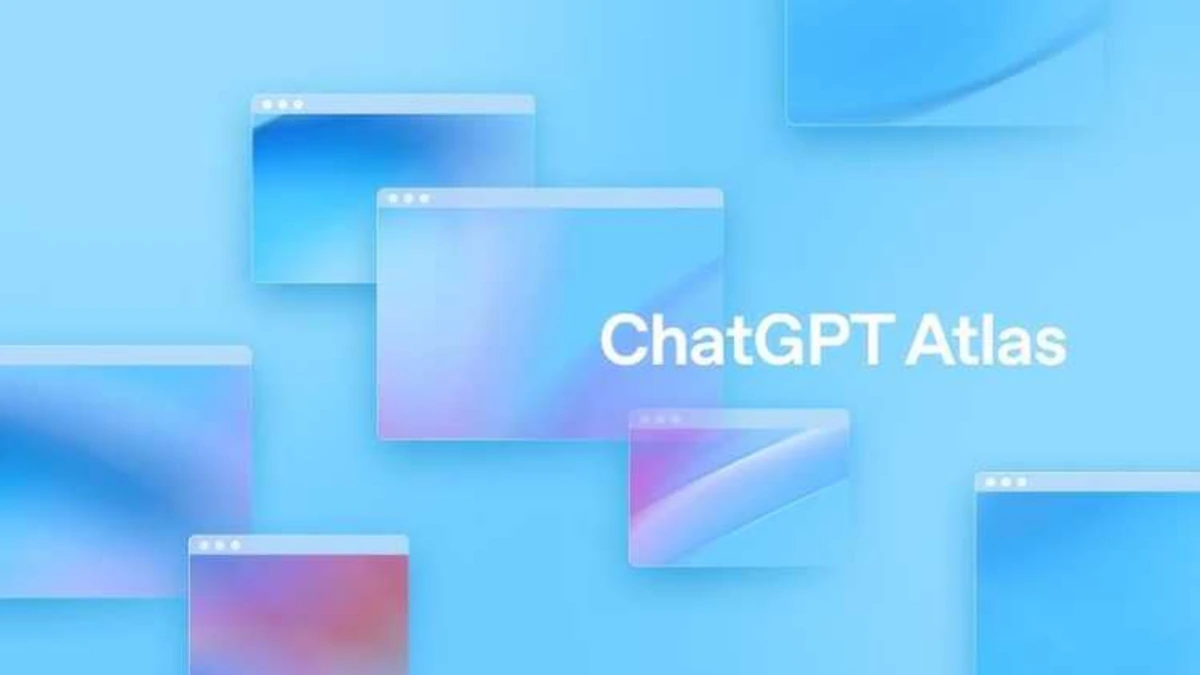SAN FRANCISCO — OpenAI on Tuesday unveiled ChatGPT Atlas, its first AI powered browser, marking the company’s boldest step yet into the web search and browsing market long dominated by Google.
The browser, available first on macOS with versions for Windows, iOS and Android coming soon, is designed to merge the capabilities of ChatGPT directly into everyday web navigation. The company said Atlas will be available to both free and paid ChatGPT users upon launch.
Ben Goodger, OpenAI’s engineering lead for Atlas and a former Chrome developer, said during a livestream that the goal was to “make browsing conversational, contextual and intelligent.”
Browsers have become the latest battleground in the race to build smarter, AI-integrated online tools. While Google Chrome maintains a commanding share of the global browser market, the rapid rise of AI assistants such as ChatGPT, Gemini and Perplexity’s Comet has prompted companies to rethink how people interact with the web.
Startups like The Browser Company’s Arc and Perplexity’s Comet have introduced AI-focused browsers that use chatbots to summarize pages, suggest actions or automate research.
In response, Google and Microsoft have begun embedding AI features into Chrome and Edge to preserve their long standing footholds. OpenAI’s entry into this space marks a significant escalation.
By leveraging ChatGPT’s multimodal intelligence combining text, image and data understanding Atlas aims to make online research, productivity and content creation seamless within a single interface.
“People don’t just want answers anymore; they want understanding,” said Goodger. “Atlas lets ChatGPT think alongside you as you browse.”
Technology analysts say the launch of ChatGPT Atlas could redefine how users approach search and discovery online.
“This isn’t about replacing search it’s about reimagining it,” said Dr. Laura Chen, an AI researcher at Stanford University. “Atlas represents a shift from keyword-based searching to context based assistance. Instead of typing queries, users can now converse with the browser itself.”
Jason Romero, a senior analyst at WebFuture Insights, called the move a “strategic strike” at Google’s dominance. “If OpenAI can deliver a smooth browsing experience where ChatGPT understands page context in real time, it could chip away at Chrome’s 60 percent market share,” Romero said.
The browser’s sidecar feature which allows ChatGPT to read and understand what’s on screen without users copying and pasting has been described as a potential “killer app” for productivity.
OpenAI’s Product Lead Adam Fry said during the livestream that this feature “eliminates unnecessary friction” and allows users to work naturally with AI.
According to data from StatCounter, Chrome currently holds roughly 63 percent of the global desktop browser market, followed by Safari at 19 percent and Edge at 5 percent.
However, recent surveys suggest a growing appetite for AI integrated browsing, particularly among younger users and professionals in creative and technical fields.
A 2025 report by TechInsights found that 38 percent of US users have tried an AI powered browser or assistant for search tasks, up from just 11 percent the previous year.
Perplexity’s Comet and The Browser Company’s Arc have both gained modest traction, with a combined user base of under 10 million, but analysts note that OpenAI’s existing ChatGPT ecosystem estimated at over 200 million active users gives Atlas a formidable head start.
“OpenAI has the advantage of scale and brand trust,” said Priya Deshmukh, an independent tech consultant based in Mumbai. “If they can integrate Atlas smoothly into ChatGPT’s existing user workflow, adoption could skyrocket.”
Early users who participated in Atlas’ beta testing described it as “intuitive” and “surprisingly human.”
“I research policy papers all day, and copying links into ChatGPT was tedious,” said James Ortega, a policy analyst in Washington, DC “With Atlas, the chatbot already knows what I’m looking at. It’s like having an assistant in the browser window.”
However, privacy advocates have expressed caution over one new capability: browser history integration, which allows ChatGPT to log the websites users visit and tailor responses based on their activity.
“Personalization is powerful, but data tracking raises serious questions,” said Ellen Ward, director at the Digital Privacy Coalition. “OpenAI will need to be transparent about how this data is stored and used.”
OpenAI stated that users will have full control over privacy settings, including options to disable history logging or limit data retention.
The launch of ChatGPT Atlas represents OpenAI’s effort to expand beyond being a chatbot provider into a broader platform for online interaction.
The company has already introduced ChatGPT Voice, GPTs (custom agents), and API integrations, and Atlas could serve as the hub that connects them all.
Industry experts believe Atlas could eventually handle automated tasks booking flights, comparing prices or managing research through AI agents that act on behalf of users.
While similar efforts by Perplexity and Anthropic have shown mixed results, the combination of OpenAI’s GPT-4.5 model and continuous browsing access could change that.
“If Atlas proves stable and useful, it could become the default AI interface for millions,” said Romero, the WebFuture analyst. “The browser has always been the gateway to the internet. OpenAI wants to make it the gateway to intelligence.”
OpenAI’s ChatGPT Atlas arrives at a time when the lines between web search, productivity, and AI assistance are rapidly blurring.
By embedding its flagship chatbot directly into the browser experience, OpenAI is betting that users are ready to move from searching the web to conversing with it.
Whether Atlas can truly challenge Google’s long standing dominance remains uncertain. But as the AI powered browser wars heat up, one thing is clear the way people find information online is evolving faster than ever.
